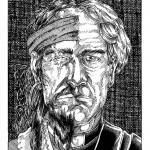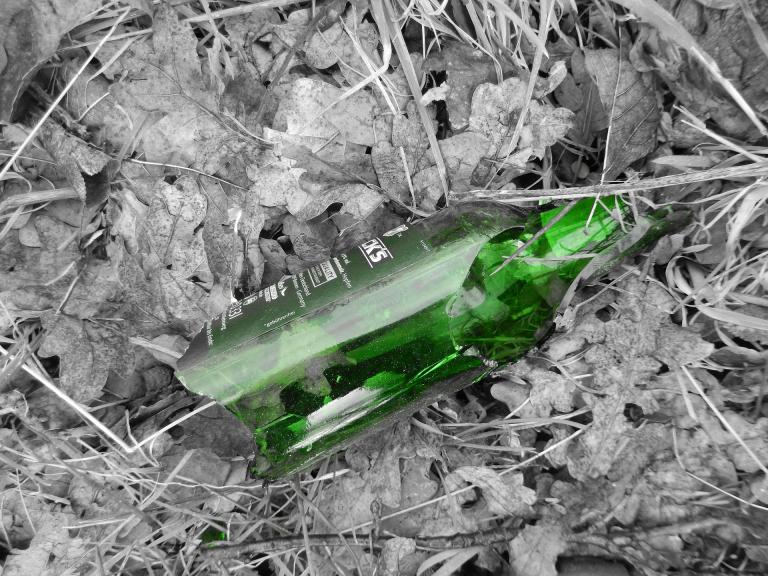God demands a tithe of time. Material goods, if allowed to do so, will consume a person’s life. They take time to produce, and they take time to maintain. Things establish a hold on human life through covetousness. Even before the thing is acquired, the desire for ownership demands an expenditure of thought and energy. Once goods are obtained man becomes in a sense a servomechanism of his possessions.
The need to preserve time from the tyranny of commodities used to be e by the Sabbath rest. God wisely instructed His people to put aside one day out of every seven to do nothing. This rest was a cease from toil and also a cease from buying and selling. “Remember the Sabbath day and keep it holy. For six days you shall labor and do all your work, but the seventh day is a Sabbath for Yahweh your God. You shall do no work that day, neither you nor your son nor your daughter nor your servants, men or women, nor your animals nor the stranger who lives with you. For in six days Yahweh made the heavens and the earth and the sea and all that these hold, but on the seventh day he rested; that is why Yahweh has blessed the Sabbath day and made it sacred” (Exod 20:9-11).
It’s worth noting that God is not just instructing people to rest for their own sake. Half of the text is devoted to making it clear that the injunction to rest is absolute: it’s not just so that the rich can have a nice day off to go picnicking with their families. It’s also so that the laborers, the slaves, and even the cattle can have some time of their own. It is not a coincidence that the abandonment of this commandment in the modern world has gone hand-in-hand with the exploitation of laborers and the loss of real leisure amongst the lower classes.
The prohibition on forcing others to work is also a commandment to release oneself from bondage to things. When the Mosaic law was given, people’s primary possessions were their land, their slaves, and their cattle. Moses commanded them to spend an entire day every week in freedom from their goods: their slaves and their cattle would have rest, and they also would have rest from the responsibility of stewarding. This legislation of freedom from material concerns also extended to the land: obviously the land itself could not take a day off. Sun would continue to shine, and the corn would continue to ripen in the fields. Therefore, a sabbatical year was also commanded: “For six years you may sow your land and gather its produce, but in the seventh year you must let it lie fallow and forgo all produce from it” (Exod 23:10-11).
The Sabbath encouraged detachment from temporal goods by putting aside a tithe of time for God. “You must keep the Sabbaths carefully because the Sabbath is a sign between myself and you from generation to generation to show that it is I, Yahweh, who sanctify you” (Exod 31:13). One of the great, perennial temptations is the inclination to found personal worth and identity in money and in the acquisition of material goods. The Sabbath, by forcing people to take an entire day every week to stop working and trading, forced them to look within, to confront themselves in relation to God, and to firmly establish the parts of the self that are not related to ownership.
Few people, even today, would openly admit to themselves that their sense of self-worth is based on their money, but it is experimentally demonstrable. Left-wing activists have tried to institute a sort of secular Sabbath, a day of rest that comes around not once a week but once a year. It is called “Buy Nothing Day.” Very few people participate, and many of those who do find it tremendously difficult. This is very revealing: it means that socially conscious lefties who are ideologically committed to disentangling themselves from the mechanisms of consumer culture are addicted to shopping — so addicted that it seems like a serious mortification to forgo spending money for a single day out of the year. If you are inclined to jump on your high horse and start opining about how a life divorced from God is sure to produce such perversions, stop and think again: many of the socially conscious lefties in question are Christians sporting “What Would Jesus Buy” t-shirts.
The link between identity and shopping is revealed by the sense of boredom that prompts people to shop and that arises very quickly if the ability to shop is withheld. Recall that time is the currency of identity: if most of a person’s time is spent earning money to buy goods, shopping for goods, watching television whose primary purpose is to flog goods, and using or maintaining the goods that they own, the result is going to be an identity that is very closely bound to commercial life. If that person stops buying and selling, the result is a deep and unreasonable sense of angst. At exactly what point this will kick in is different from person to person: some people become anxious if they find themselves in a place where the stores are not open twenty-four hours per day, others will get antsy halfway through Buy Nothing Day, and others will start to get the shakes after a week of consumer detox. The sense of boredom — of “not knowing what to do” with oneself — is a profound indication that there is a hole in one’s personal identity that is being filled by the consumption of goods.
When goods are filling in for deeper personal needs, the relationship with them becomes compulsive. Most people will only apply the term “shopaholic” to someone who is more addicted to shopping than they are, yet anyone who can’t easily go one day a week without shopping is clearly an addict. Addicts are not free to make rational choices about what they will and will not consume. They are not able to spend their money responsibly, and they are not capable of practising meaningful detachment from the objects of their addiction.
Detachment from consumer addiction is not an optional adjunct to the spiritual life. The practice of constant production and constant consumption is a real, objective evil. God was not joking around when He instituted mandatory rest: the first man who ever got caught gathering wood on the Sabbath was taken out of the camp and stoned to death. 24/7 consumerism exhausts the least of our brothers who are forced to toil without ceasing; it exhausts the earth, which is never allowed to recover from our constant demands on its resources; and it exhausts the interior resources of the self, which are never refreshed at the springs of silence and contemplation.
Excerpted from Slave of Two Masters
Photo credit: Pixabay













